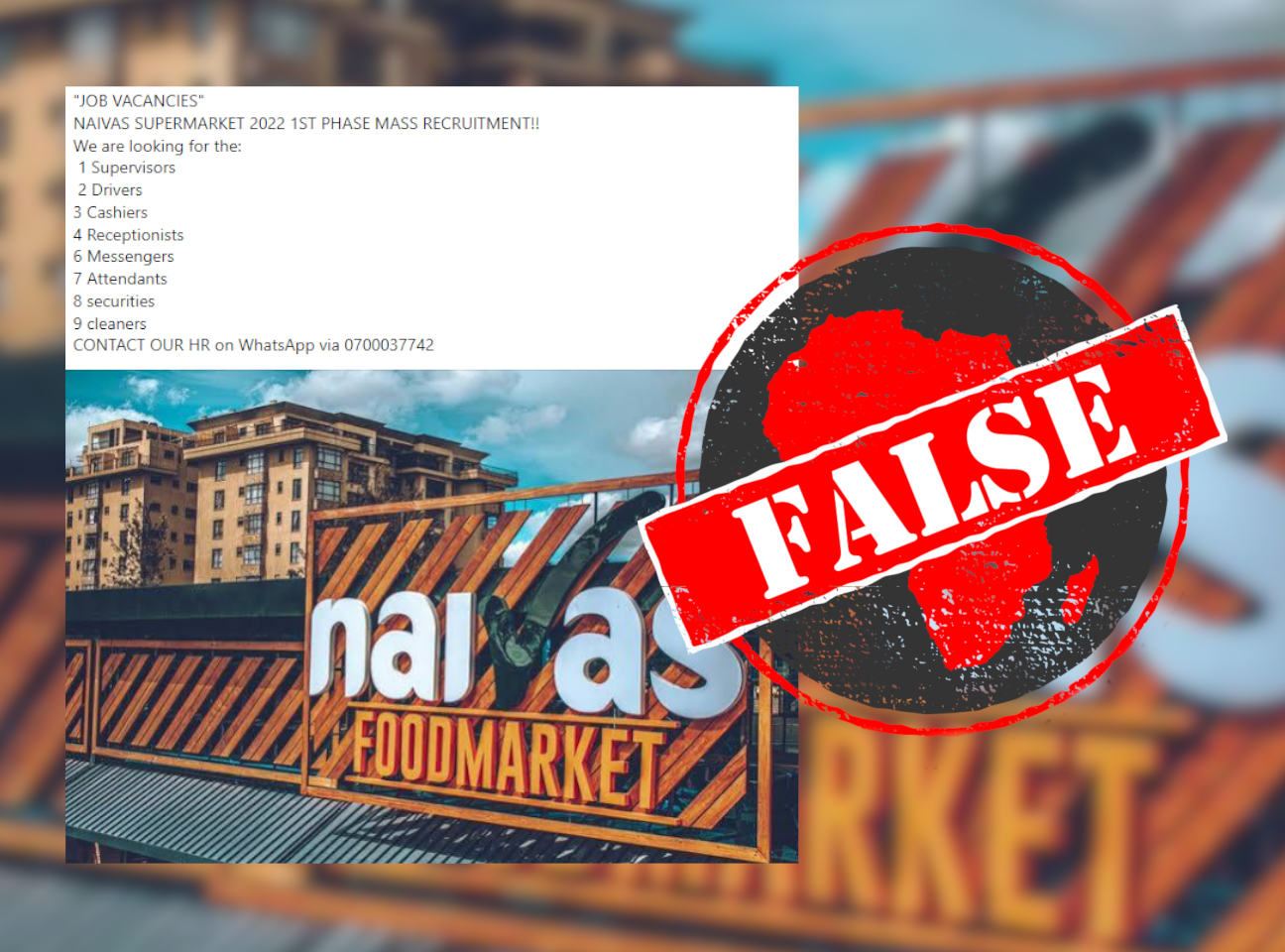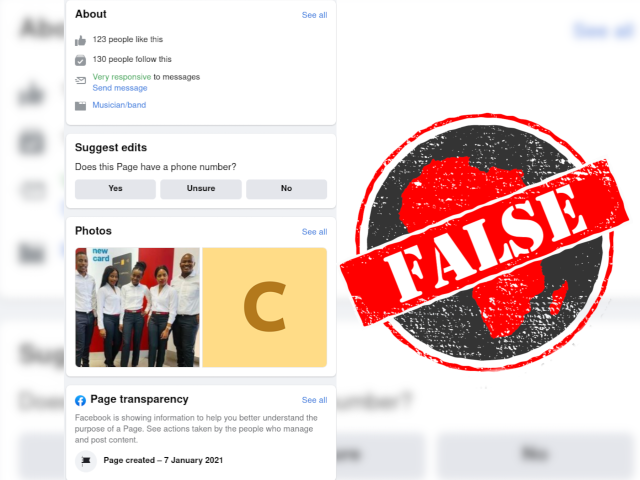IN SHORT: Despite widespread ads saying the supermarket chain is recruiting for a whole host of vacancies, Naivas is not luring job-seekers on Facebook or WhatsApp. The misleading ads might be attempts to scam the desperate.
An advert posted on different Facebook groups in October 2022 claims that Kenyan supermarket chain Naivas is conducting the first phase of “mass recruitment”.
It reads in part: “NAIVAS SUPERMARKET 2022 1ST PHASE MASS RECRUITMENT!! We are looking for supervisors, drivers, cashiers, receptionists, messengers, attendants, securities and cleaners.”
It then gives a phone number to contact “HR”, or human resources.
Africa Check has debunked a number of fake job adverts targeting the supermarket. In March, we debunked one such ad offering bogus jobs across different towns in Kenya.
This new ad also appears here, here, here, here, here, here, here and here.
But is it legit? We checked.

Clues ad is fake
There is no mention of any open positions on Naivas’s official Facebook page.
It is also suspicious that while the ad is the same, different people are posting it on Facebook with different contact numbers, supposedly for the supermarket’s human resource manager.
And none of the three numbers we saw feature in the “contact us” section of the supermarket’s website.
The ad’s request to have those interested engage privately by sending a message to a WhatsApp number might be an attempt to scam them.
In March the supermarket told Africa Check that it did not advertise vacancies on social media, and we could find no indication this has since changed.
To protect yourself against scams, read our guide to Facebook scams and how to spot them. Report any suspicious Facebook posts by clicking “report post” on the top right of any post.
Republish our content for free
For publishers: what to do if your post is rated false
A fact-checker has rated your Facebook or Instagram post as “false”, “altered”, “partly false” or “missing context”. This could have serious consequences. What do you do?
Click on our guide for the steps you should follow.
Publishers guideAfrica Check teams up with Facebook
Africa Check is a partner in Meta's third-party fact-checking programme to help stop the spread of false information on social media.
The content we rate as “false” will be downgraded on Facebook and Instagram. This means fewer people will see it.
You can also help identify false information on Facebook. This guide explains how.



Add new comment